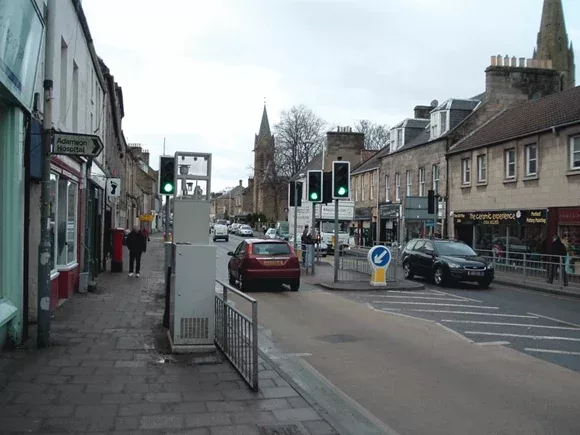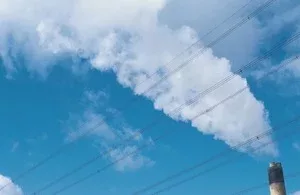Following the success of initiatives to improve Fife’s air quality, the council is set to fully revoke the two Air Quality Management Areas (AQMA’s) at Bonnygate, Cupar and Appin Crescent, Dunfermline, from November 2023.
To protect people’s health and the environment, each UK local authority has been carrying out a review and assessment of air quality in their area. This involves measuring air pollution and trying to predict how it will change in the next few years. The aim of the review is to make sure that national air quality objectives are achieved by the relevant deadlines.
If a local authority finds any places where the objectives are not likely to be achieved, it must declare an Air Quality Management Area (AQMA). There are currently over 600 AQMAs in the UK for the road traffic pollutant nitrogen dioxide (the principal road traffic pollutant). Declaration of an AQMA requires councils to put a Local Air Quality Action Plan in place, which is exactly what Fife Council did to effectively reduce pollutants.
Councillor Jan Wincott, Spokesperson for Environment and Climate Change, said: “Air quality is good in most parts of Fife, however, there have been a few specific areas of concern, where pollution has been an issue. Revoking these two AQMAs is a testament to the success of the measures that have improved air quality at these locations.
“Working with local communities has been a key factor in achieving these goals, and campaigns such as the Anti-Idling Campaign and Clean Air Day events, have been instrumental in reducing air pollution in parts of Fife.
“As we continue to address the climate emergency in Fife, it is really encouraging to see the Scottish Government and SEPA recognise our efforts to improve air quality.”
Both Action Plans for Appin Crescent, Dunfermline and Bonnygate, Cupar resulted in these AQMA’s being amended to remove the pollutant NO2 (nitrogen dioxide) after recommendations from the Scottish Government and Scottish Environment Protection Agency (SEPA). This decision followed three years of the NO2 pollutant being kept under the prescribed limit.
At the time, the Council abstained from revoking the PM10 aspect of the AQMAs, as a comparison study of particulate monitors was being undertaken on behalf of the Scottish Government.
The findings of this study were published in early 2023 and recommend a correction be applied in relation to PM10 and PM2.5 data due to certain monitors shown to be under reading. This decision indicates compliance with the prescribed limits for these pollutants for three or more years.
To achieve these objectives, the Council set up a Core Air Quality Steering group, with both internal services and external agencies. The group produced an Air Quality Strategy and action plan that led to the decrease of pollution in Bonnygate and Appin Crescent.
These measures have included road traffic management, such as a co-ordinated traffic queue relocation system in Bonnygate, and improved road traffic signage in Appin Crescent. Other measures include promoting active travel, such as walking and cycling.
Following revocation of these two AQMAs, Fife Council will continue to monitor and assess air quality at these locations to ensure compliance and further improvements can be made through its Air Quality Strategy.
(Picture – Fife Council)























